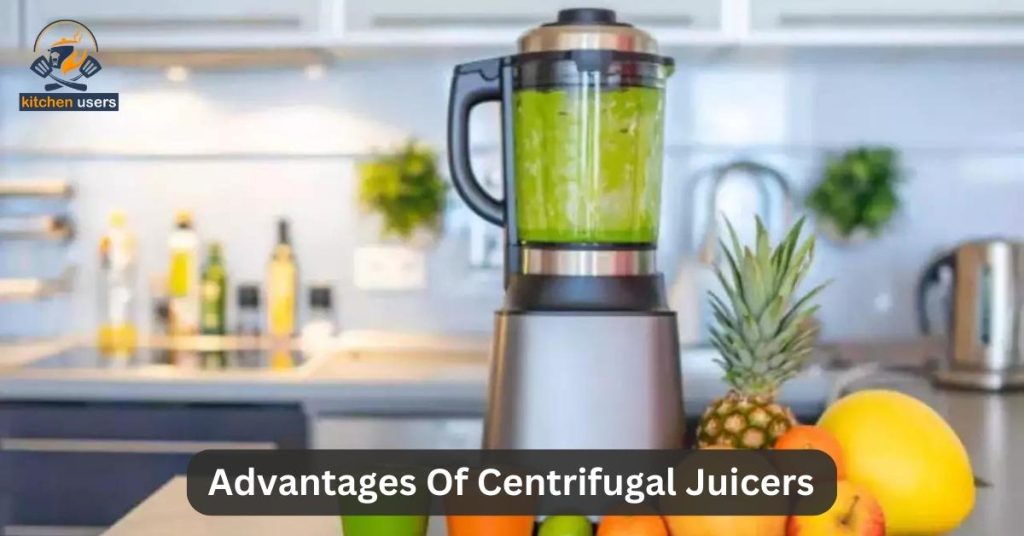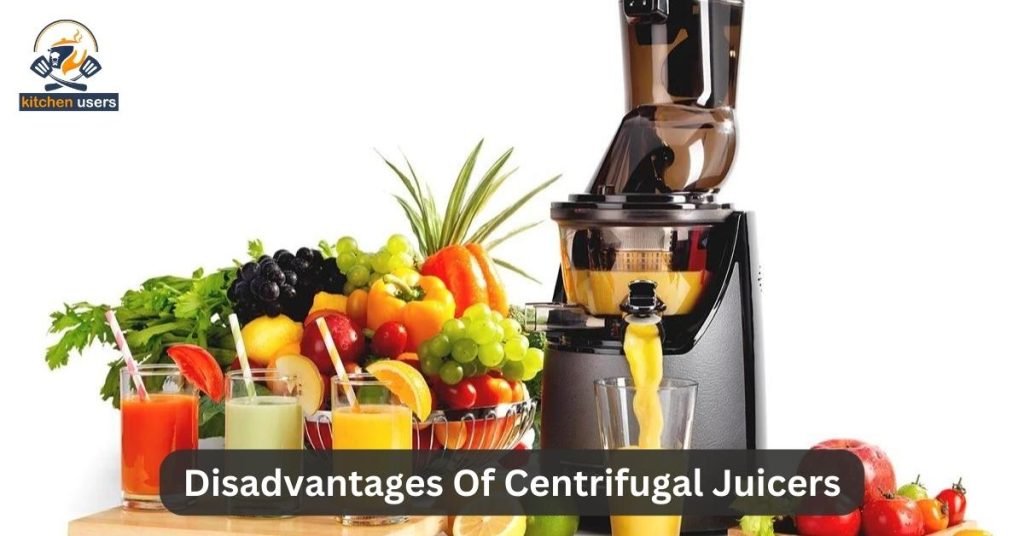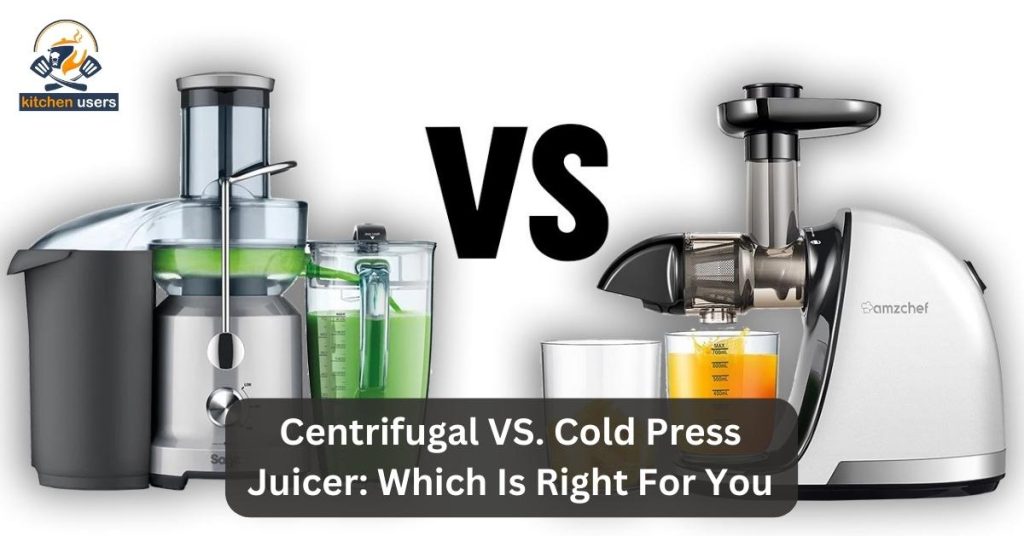Centrifugal juicers have been around for decades and are a popular choice for many people. because they are affordable and easy to use. There is debate about whether these juicers destroy the nutrients of fruits and vegetables.
Do centrifugal juicers destroy nutrients? There is no definitive answer to this question. However, there is some proof that centrifugal juicers contaminate nutrients. But the extent to which this is happening is still a matter of debate.
Considering purchasing a centrifugal juicer? It is important that you do your research on a quality product that meets your needs. To understand more about centrifugal juicers and whether they contaminate nutrients, continue reading.
Do Centrifugal Juicers Kill Nutrients?
The quick response is no. Nutrients are not destroyed by centrifugal juicers. They are one of the most effective ways to extract nutrients from fruits and vegetables. The way centrifugal juicers function is by rapidly spinning produce. It separates the juice from the pulp and maximizes the number of nutrients that can be extracted from the crop.
There are many advantages to using a centrifugal juicer, which include that it is very easy to use and clean. They are very affordable. Making them a great option for a budget
How Does A Centrifugal Juicer Work?
Centrifugal juicers use centrifugal force to extract juice from vegetables. This power is generated by a rotating basket containing sharp blades rotating at high speed. Centrifugal force breaks down fruits and vegetables and separates the juice from the pulp.
The pulp is removed from the juicer while collecting the juice in a container. Compared to other juicers, centrifugal juicers are typically cheaper and simpler to use. But, they are not as efficient at extracting juice from leafy greens and can be messy.
Advantages Of Centrifugal Juicers

Fruits and vegetables are juiced using rotating discs in a centrifugal juicer. Compared to other juicers, such as masticating juicers, this produces a larger juice yield. Additionally, centrifugal juicers often cost less than masticating juicers.
Some of the advantages of centrifugal juicers include the following:
- They are less expensive than masticating juicers.
- They are more available than masticating juicers.
- They are easier to work with than masticating juicers.
- They have a higher juice yield than masticating juicers.
Suppose you want a juicer that costs less money and is simpler to use. For you, a centrifugal juicer might be a wise choice.
Disadvantages Of Centrifugal Juicers

Centrifugal juicers are extremely well-liked since they are affordable and simple to operate. But, there are some disadvantages to using a centrifugal juicer.
The biggest disadvantage of centrifugal juicers is. They are not good at juicing green vegetables and soft fruits. Because centrifugal force breaks down the cell walls of such fruits and vegetables. Fruit juice contains a lot of pulp and foam.
Another disadvantage of centrifugal juicers is that they can be quite loud. Are you looking for a cool juicer? Then you should choose a masticating juicer instead of a centrifugal juicer.
Finally, centrifugal juicers must be cleaner than other types of juicers. This is because fruit and vegetable pulp can clog the filters. Hence frequent cleaning is required.
Centrifugal VS. Cold Press Juicer: Which Is Right For You?

When it comes to juicing, you need to decide which type of juicer is right for you. Centrifugal and cold press juicers are the two primary varieties available today. Both types have their pros and cons. So it’s important to know the difference before deciding which one to buy.
The most common type of juicer on the market is a centrifugal one. They have the lowest prices. Fruits and vegetables are spun quickly using centrifugal juicers to extract the juice. They are simple to use and clean. They are generally less expensive than cold press juicers.
Cold press juicers are a new type of juicer that is becoming more popular. Cold press juicers work by crushing fruits and vegetables to extract the juice. They are more expensive compared to centrifugal juicers. They are more effective and generate juice of greater quality.
Other Ways To Reduce Nutrient Loss During Juicing
When it comes to juicing, many people have the impression that the primary purpose is to extract nutrients from fruits and vegetables. But this is not the only reason for juicing. Juicing has many advantages, one of which is that it minimizes nutritional loss.
There are many ways to cut nutrient loss when juicing, and each one is important. Here are some of the best techniques:
- Use a juicer that retains nutrients.
- Juice fruits and vegetables immediately after buying.
- Store juiced fruits and vegetables in an airtight container.
- Eat a balanced diet.
By following these simple tips, you can help reduce nutrient loss.
FAQ
Do Juicers Destroy Nutrients?
Many people believe that juicers destroy the nutrients in fruits and vegetables, but this is not true. Although it is true that juicers can remove some fiber from produce. They can also help extract other important nutrients. It is not obtained from eating whole foods.
Plus, juicers can help make these nutrients more bioavailable. This means your body can absorb and use it more. Juicers, therefore, are not the ideal method for obtaining all the nutrients from fruits and vegetables. But they can be a helpful tool to increase your nutrient intake.
Is Masticating Juicer Better Than A Centrifugal One?
The greatest kind of juicer is a topic that has no obvious winner. Some individuals favor masticating juicers. Because they believe that the juices produced are of higher quality and more nutritious. Others prefer centrifugal juicers because they are quick and easy to use. , the best juicer is the one that meets your personal needs and preferences.
What Type Of Juicer Keeps The Most Nutrients?
Juices don’t all preserve nutrients equally; some do so better than others. The type of juicer that contains the most nutrients is the cold-press juicer. Cold-press juicers use a slow, crushing action to extract the juice. This means less heat and mess and, thus, less chance of nutrient loss. If you want to get the most out of your fruits and vegetables, a cold-press juicer is a great option.
Conclusion:
Most centrifuges on the market do not destroy the nutrients in the juice. But there are a few things to consider when choosing a centrifugal juicer. Such as the quality of the juicer and the type of product you are juicing. If you’re concerned about nutrient loss. Look for a juicer that’s designed to preserve nutrients.
As a 10 years veteran in the culinary industry, I have developed a passion for all things kitchen. With a deep understanding of food preparation and cooking techniques, I am a true kitchen specialist. My experience working in Khedmot kitchen has allowed me to hone my skills and become an expert in creating delicious and visually appealing dishes.
I am a creative and innovative chef, constantly experimenting with new ingredients and cooking methods to bring unique and memorable dining experiences to my customers. In addition to my culinary expertise, I am also highly organized and able to effectively manage a team of kitchen staff, ensuring that all tasks are completed efficiently and to a high standard.
I am dedicated to my craft and always strive to create exceptional dining experiences for my customers. Whether it’s developing a new menu, training my kitchen team, or working with local suppliers, I am always looking for ways to improve and take my kitchen to the next level.
If you’re looking for a skilled and passionate kitchen specialist, look no further. I am eager to bring my expertise to your team and help take your kitchen to the next level.



9 thoughts on “Do Centrifugal Juicers Destroy Nutrients – Best Tips 2023”